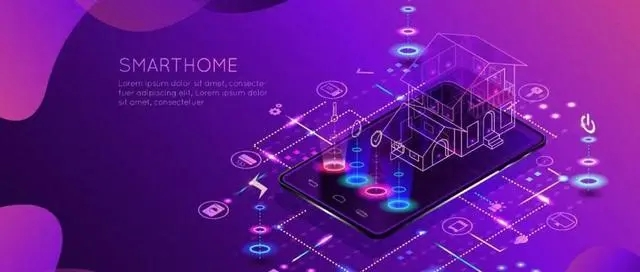Today, the application of WiFi module in smart homes has brought convenience, efficiency, and security to a whole new level. With the increasing popularity of Internet of Things (IoT), WiFi modules have become an essential component in transforming traditional homes into intelligent living spaces. In this article, we will explore the various aspects of how WiFi modules play a vital role in the evolution of smart homes.
One of the primary applications of WiFi modules in smart homes is the seamless integration of home automation and control systems. By connecting devices such as lighting, heating, ventilation, air conditioning (HVAC), security systems, and entertainment systems to a central WiFi hub, homeowners can conveniently manage and control these devices with their smartphones or voice assistants. This level of automation and control not only adds convenience but also contributes to energy efficiency and cost savings.
The WiFi module serves as the backbone of smart security and surveillance systems in contemporary homes. These modules enable homeowners to monitor their properties remotely and receive real-time notifications in case of any security breaches. With WiFi-connected cameras, motion detectors, and door/window sensors, smart homes can deter potential intruders and provide homeowners with peace of mind, even when they are away.
WiFi modules have revolutionized energy monitoring and management in smart homes. By connecting appliances such as smart thermostats, smart plugs, and energy meters to the WiFi network, homeowners can monitor their energy consumption and make informed decisions to optimize efficiency and reduce costs. Integration with smart meters allows for detailed energy usage analysis, enabling homeowners to identify energy-hungry devices and adjust their usage accordingly.

WiFi modules have transformed the way we enjoy entertainment and media in our homes. By connecting smart TVs, streaming devices, and audio systems to the WiFi network, homeowners can effortlessly stream their favorite movies, TV shows, and music from various online platforms. The wireless connectivity offered by WiFi modules ensures a seamless and uninterrupted streaming experience, enhancing the overall entertainment value within smart homes.
WiFi modules have made lighting control more intelligent and energy-efficient. With WiFi-connected smart bulbs and lighting systems, homeowners can create custom lighting scenes, set schedules, and adjust brightness levels from anywhere using their smartphones or voice commands. The integration of WiFi modules with lighting systems not only enhances the ambiance but also contributes to energy savings by automatically turning off lights when not needed.
WiFi modules enable voice-based home automation through integration with popular voice assistants like Amazon Alexa and Google Assistant. With the power of WiFi connectivity, homeowners can control various aspects of their smart homes using simple voice commands. Whether it's adjusting the thermostat, playing music, or even ordering groceries, voice-based home automation adds another layer of convenience and hands-free operation.
WiFi modules have paved the way for intelligent appliances and personal assistants that seamlessly integrate with smart homes. From WiFi-connected refrigerators that provide inventory management to smart speakers capable of answering queries and controlling other devices, IoT-enabled appliances and personal assistants are redefining the way we interact with our homes. WiFi modules act as the medium through which these devices communicate and collaborate for a truly connected home experience.
In conclusion, the application of WiFi modules in smart homes has revolutionized the way we live by transforming traditional houses into interconnected, efficient, and secure living spaces. The integration of WiFi modules enables enhanced home automation, smart security, energy management, entertainment, lighting control, voice-based automation, and intelligent appliances. With each passing day, WiFi modules continue to play a pivotal role in shaping the future of smart homes.
 Trolink Joint With Tuya to Make Iot Benefit Every Family
Trolink Joint With Tuya to Make Iot Benefit Every Family
 5 Key Indicators for WiFi Module Selection You Have to Know !
5 Key Indicators for WiFi Module Selection You Have to Know !
 IOT module is the brain of smart products
IOT module is the brain of smart products
 What is the signal coverage range of the WiFi module chip?
What is the signal coverage range of the WiFi module chip?